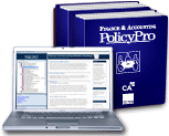
A better month-end close is possible. Like clockwork, a calendar month ends and in honour of this unchangeable fact, you must update the general ledger and prepare financial statements and management reports. The practical tips below can reduce stress, shorten the month-end cycle, increase accuracy and otherwise improve month-ends:
- Plan. Great month-ends do not happen by themselves. Use policies and procedures including deadline calendars, checklists and other tools, and clearly assign responsibilities for tasks.
- Do as much as you can before the end of the month. For example, if your payroll is relatively consistent, you can accrue payroll before the end of the month, using your last pay run of the month. If a last payroll is atypical you can make adjustments if necessary, so that you do not over- or under-accrue.
- Defer non-essential activities until after the month-end. For example, defer petty cash reconciliations and perhaps some management reports (with ratios, for example) until after the delivery of financial statements.
- Identify controlling activities—things which you must complete early enough to avoid delaying other month-end activities. Information from other departments and work on certain financial statement components are examples of controlling activities. For instance, the accuracy of fixed assets typically depends on finalizing accounts payable. If you have not yet completed accounts payable, your updates to fixed assets may exclude material or significant acquisitions. Efficiencies in controlling activities translate into overall efficiencies in the month-end process.
In the same vein, if others are creating bottlenecks by failing to submit invoices and expense claims on time, for example, you will need to address this issue. Instead of sending someone an email reminder, at a certain stage, you may need to walk over to their desk and deliver a personal reminder. For repeat offenders, you may need to involve their managers; their managers may need to make the non-compliance a performance issue. - Materiality is critical. Set dollar and percentage materiality thresholds, by financial statement component, and avoid immaterial adjusting entries. It is likely not worth the effort to correct an error of a few hundred dollars in the depreciation calculation. But, track unadjusted amounts to ensure that they do not accumulate to a material error or misstatement, before finalizing the financial statements.
- Use roll-forwards. Review accounts, correct errors, prepare account analyses and complete any other steps possible, for a date before the end of the month—say the 20th. Then, in the days after the end of the month, roll-forward or update your work to the end of the month.
- Shift processes to other departments. A payroll system enhancement that allows managers to self-serve or enter employee work hours and absences, with payroll merely reviewing and confirming, would free up time for other month-end (or accounting) activities.
- Change processes. You may be able to expedite processing by changing expenditure approval practices. For instance, expedite expense claim processing around month-end, by accepting claims below a certain threshold without detailed vetting before entry and payment, and instead, vet them after the month-end.
You may also be able to forego monthly approval for select expenses. A case in point, if there is a satellite office, there is no need for the manager of that office to approve the recurring cable bill for the same monthly amount, every month. If you forego monthly approval, implement procedures to periodically confirm that the service is still in place and at the level invoiced. - Automate. Avoid manual procedures where possible. As an example, determine if you can configure software systems to generate reports so that you do not have to create them manually. Perhaps simplify reporting to adapt to the system’s capabilities, if necessary.
Additionally, use electronic solutions where possible. Implementing electronic funds transfer (EFT) and direct deposits for accounts payable and payroll, respectively, will free up cheque handling time for other activities.
- Occasionally, consider a soft close. A soft close occurs when you skip some of the usual month-end steps, sacrificing accuracy for a speedier close. This is not appropriate in all cases, and you must take a risk-based approach–omit only those activities which are unlikely to cause material errors or misstatements. Otherwise, the resulting financial statements may be meaningless.
Implement the above strategies for immediate improvements in the speed and accuracy of your month-end closes. Review your processes and solicit input from the accounting and management teams, to identify other strategies that may work in your organization.

Additionally, log in to Finance and Accounting PolicyPro now, and go to FN 7.02 – Management and Financial Reporting and FN 7.05 – General Accounting, for policies and many other strategies, tools and checklists to help you improve your month-end close.
Policies and procedures are essential to financial reporting, but the work required to create and maintain them can seem daunting. Finance and Accounting PolicyPro, co-marketed by First Reference and Chartered Professional Accountants Canada (CPA Canada) contain sample policies, procedures and other documents, plus authoritative commentary in the area of finance and accounting, to save you time and effort in establishing and updating your internal controls and policies. Not a subscriber? Request a free 30–day trial of Finance and Accounting PolicyPro here.
- Improve order processing to avoid downstream problems - April 3, 2024
- Overdue accounts finance your customers’ businesses - March 6, 2024
- Gift acceptance: Sometimes a gift costs more than it is worth - February 7, 2024

